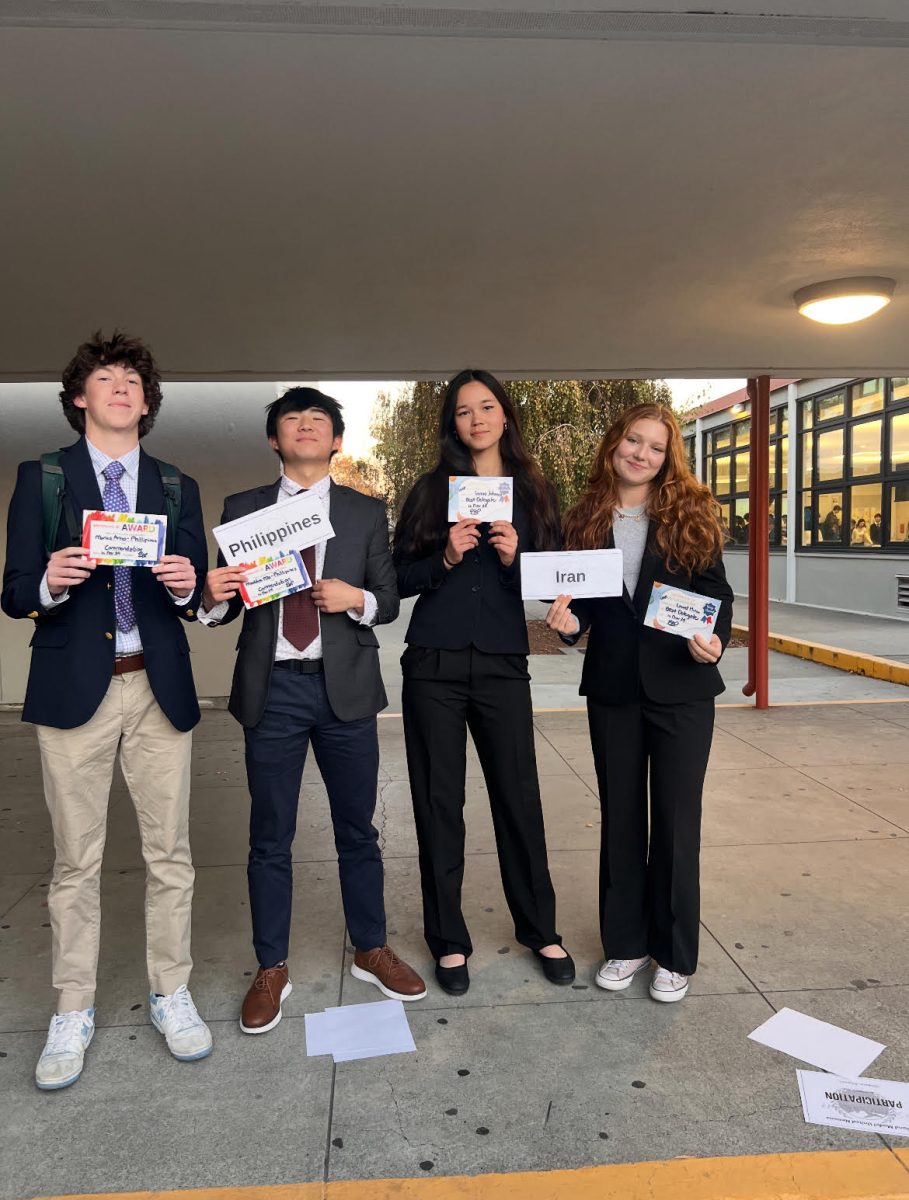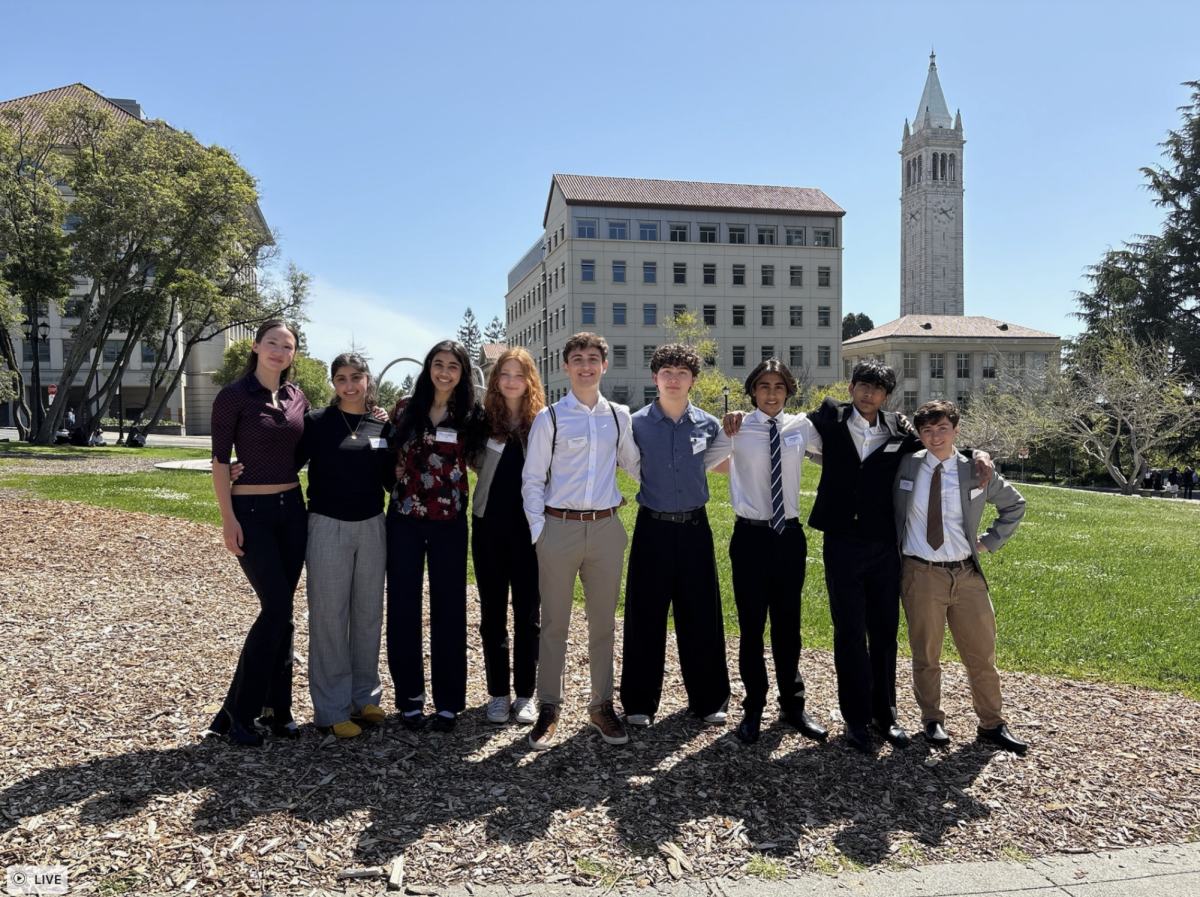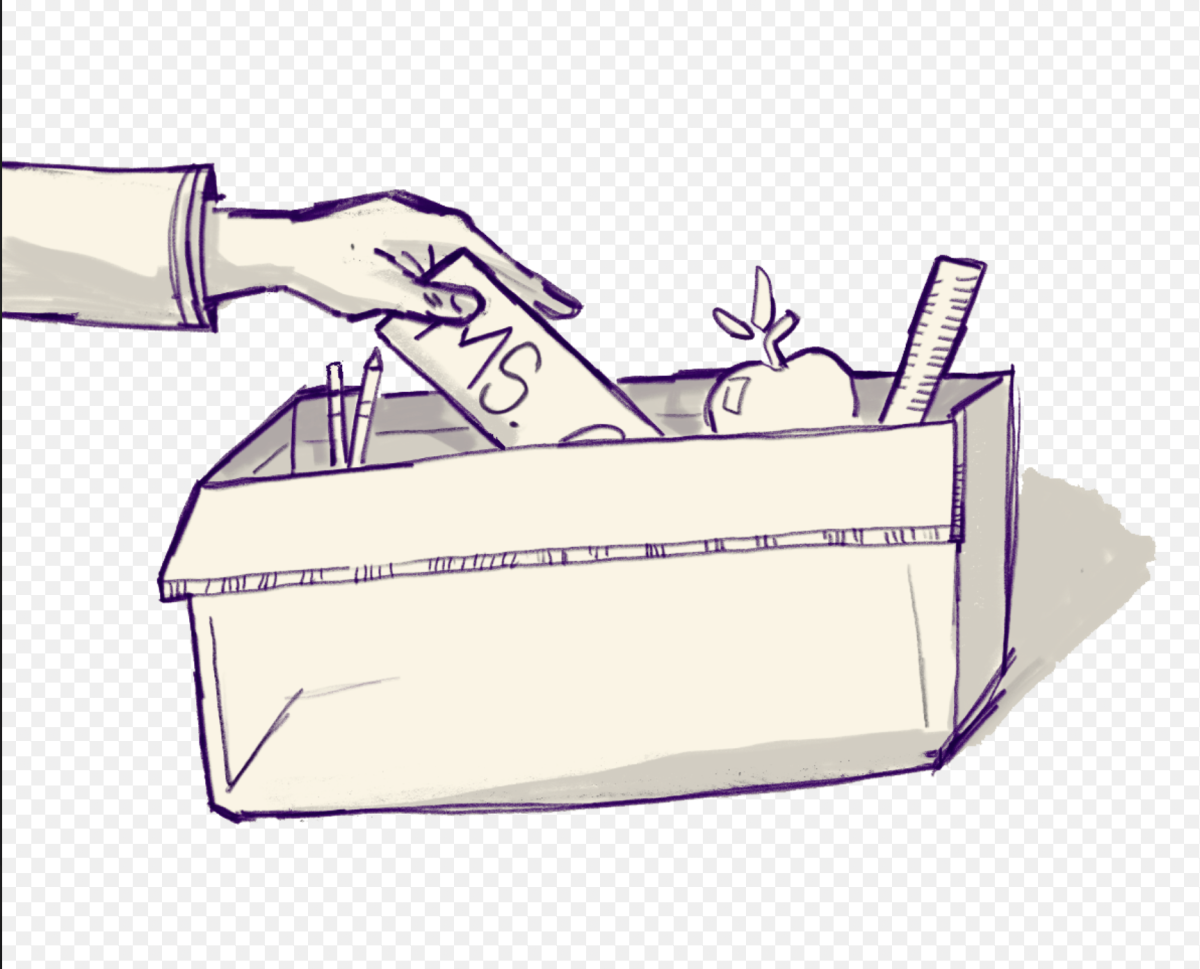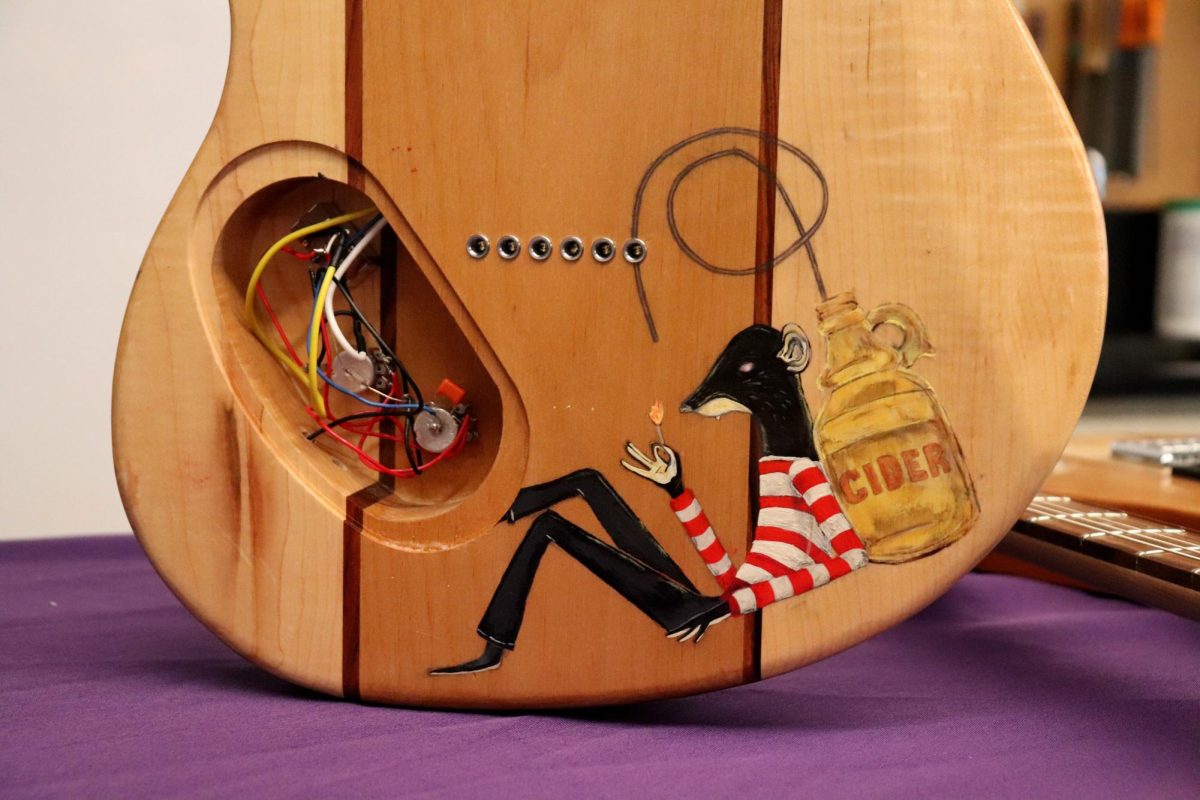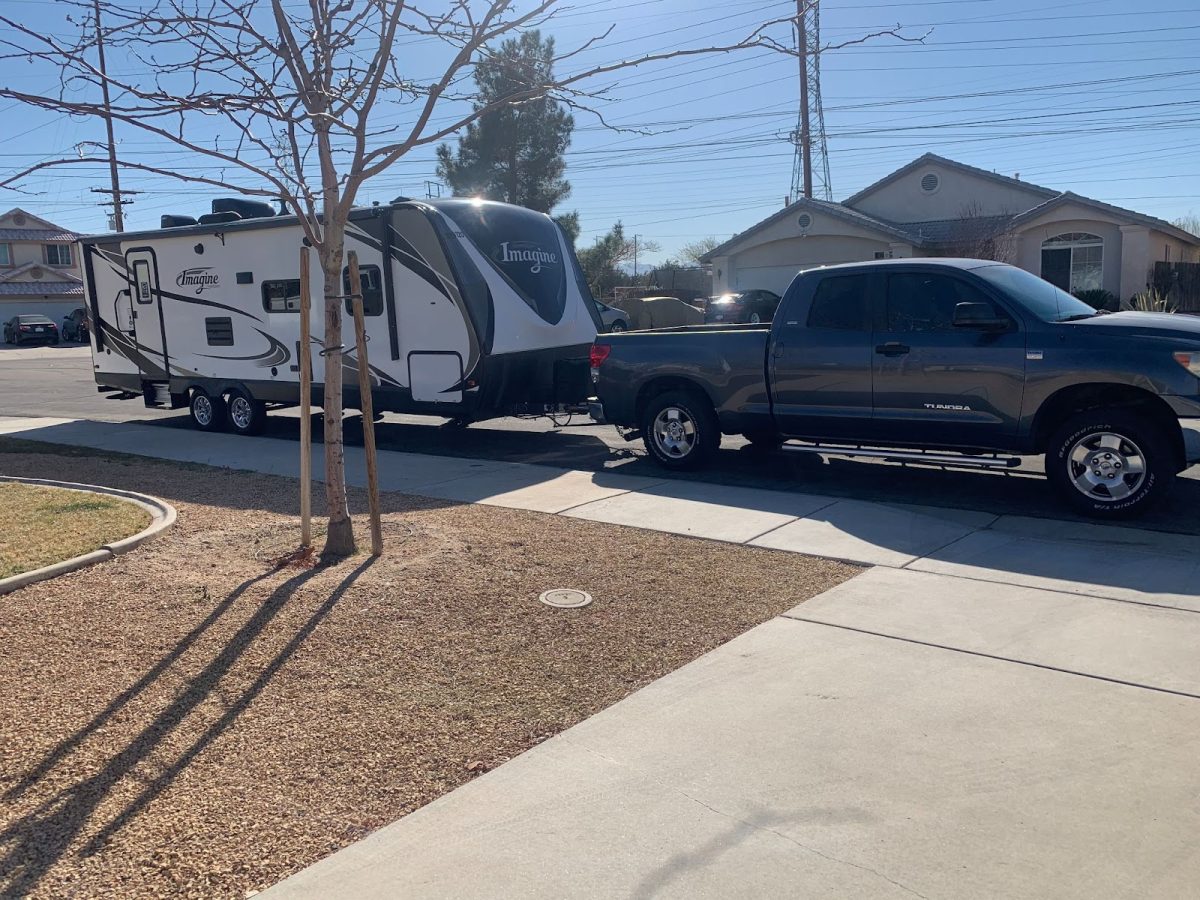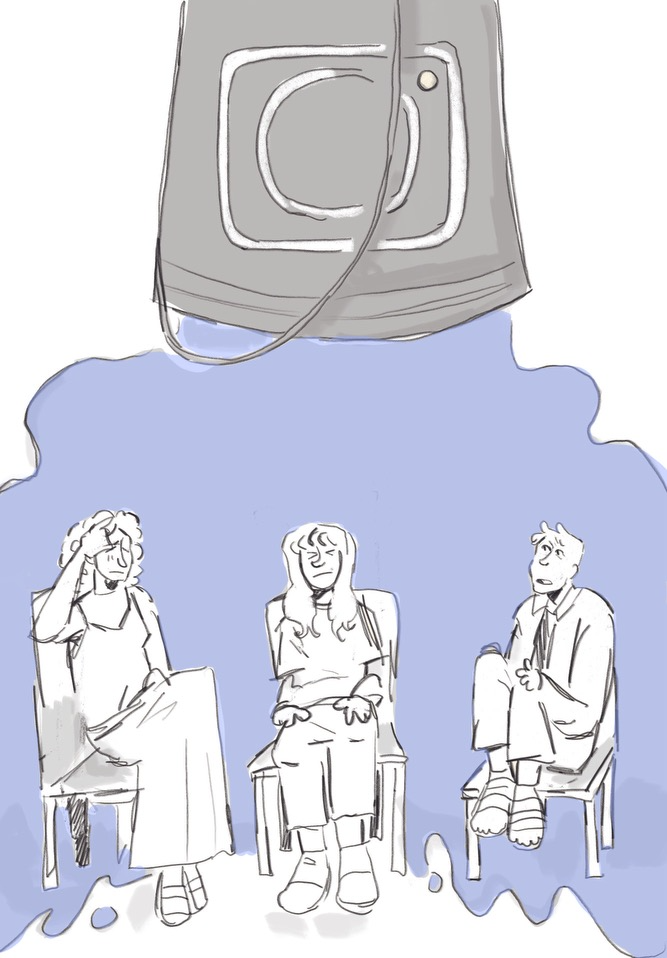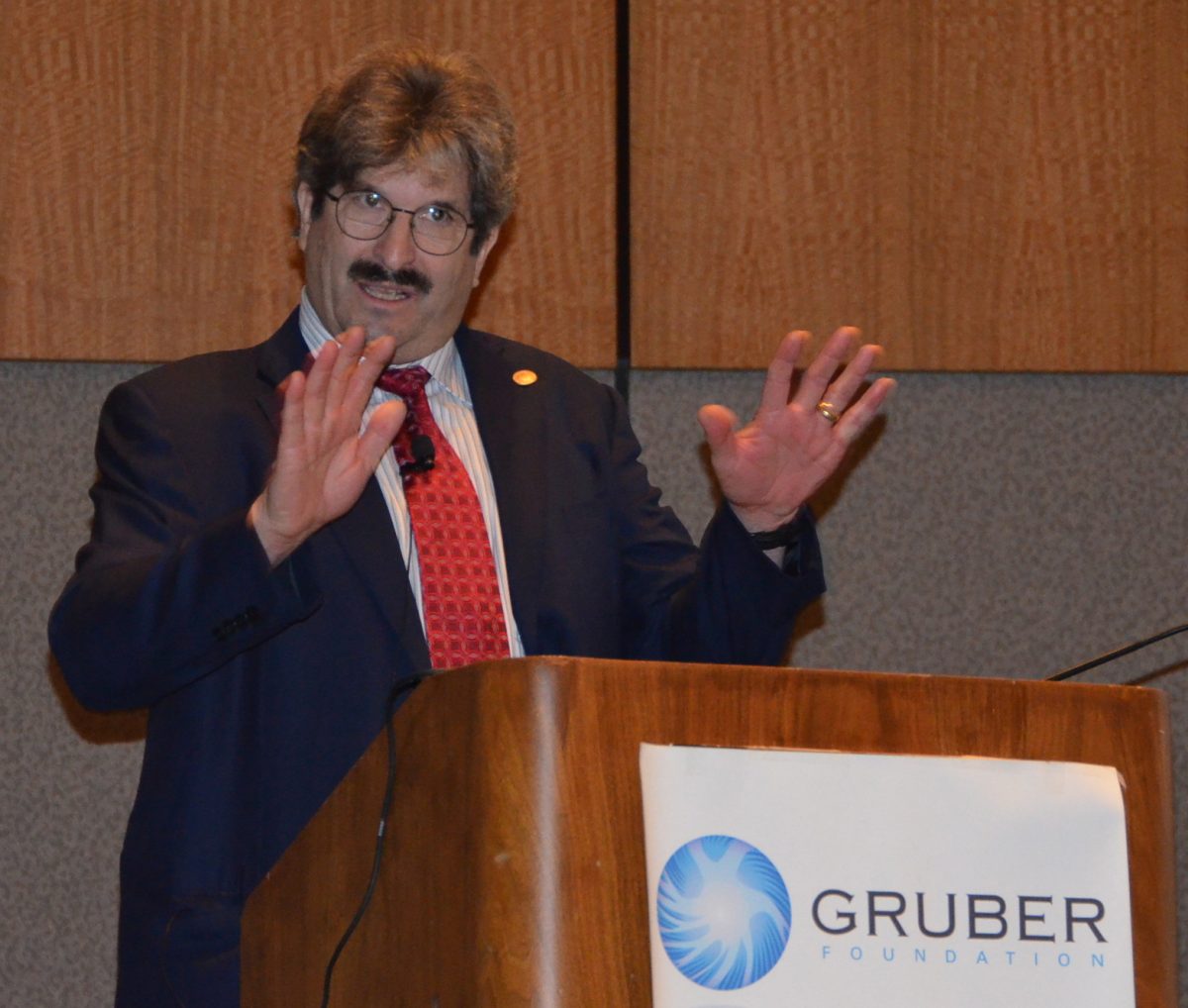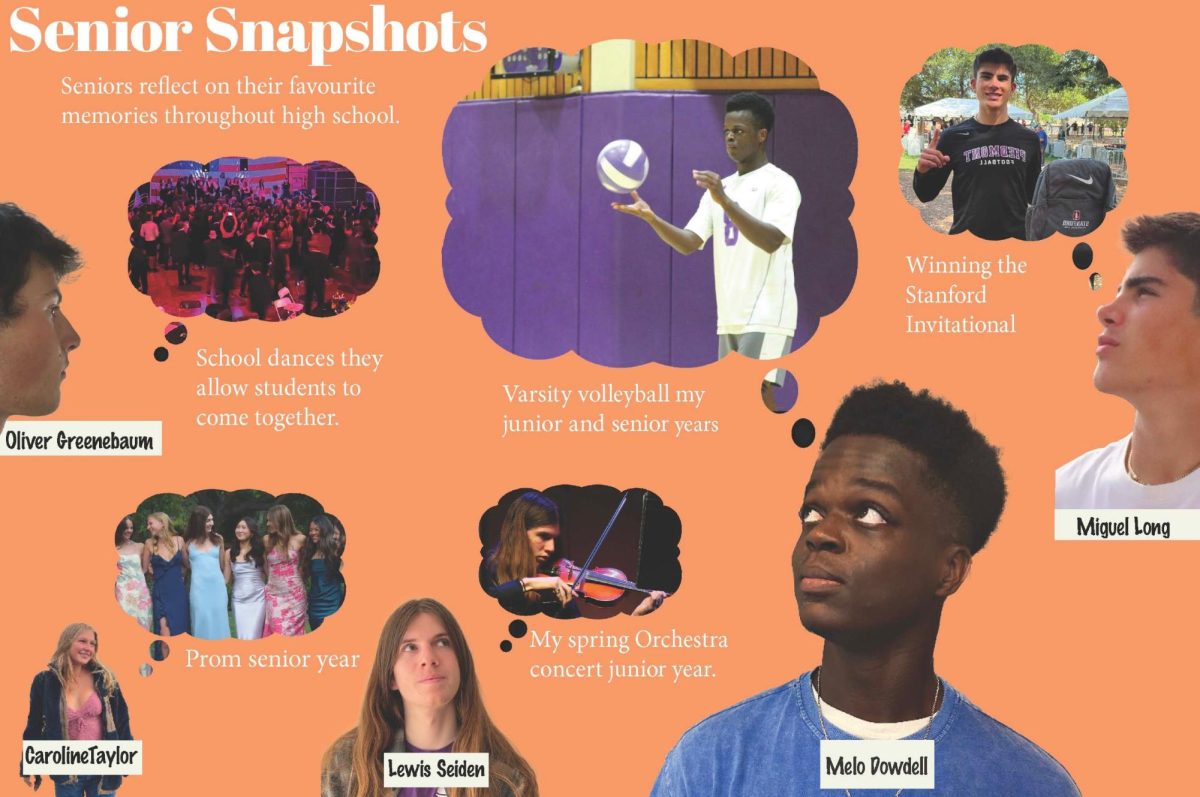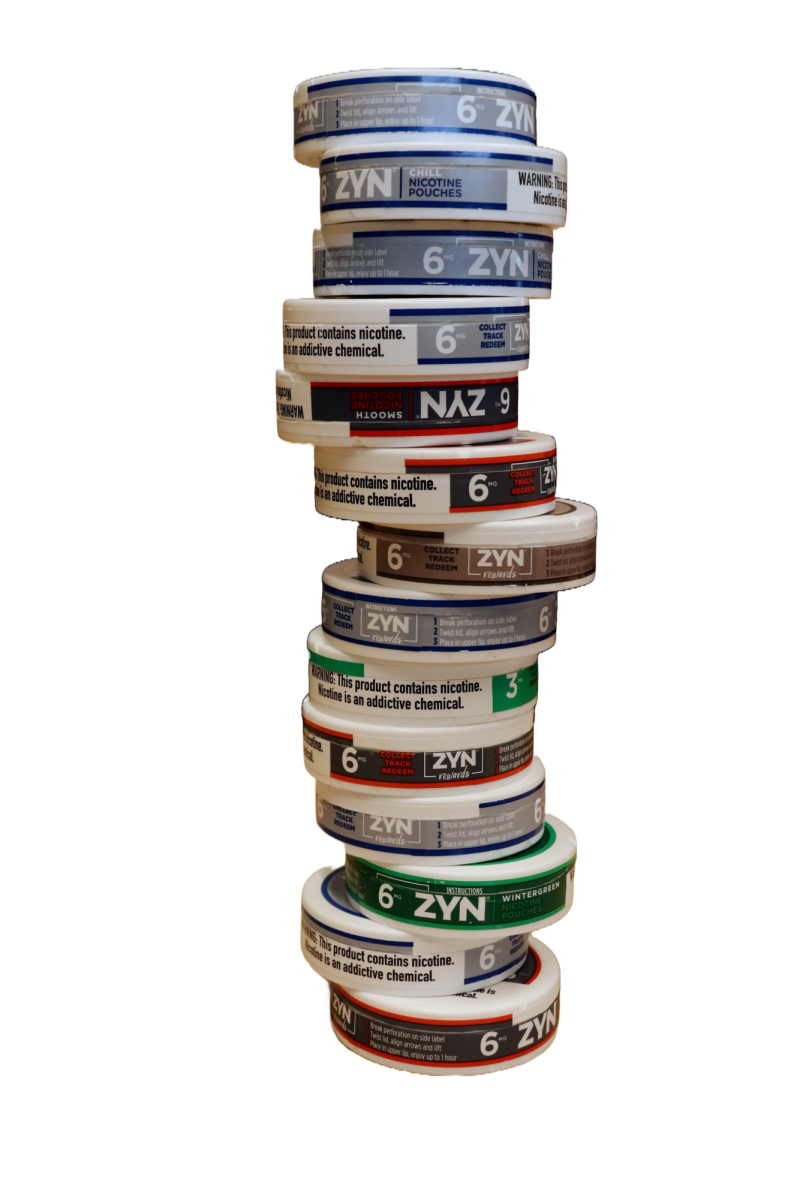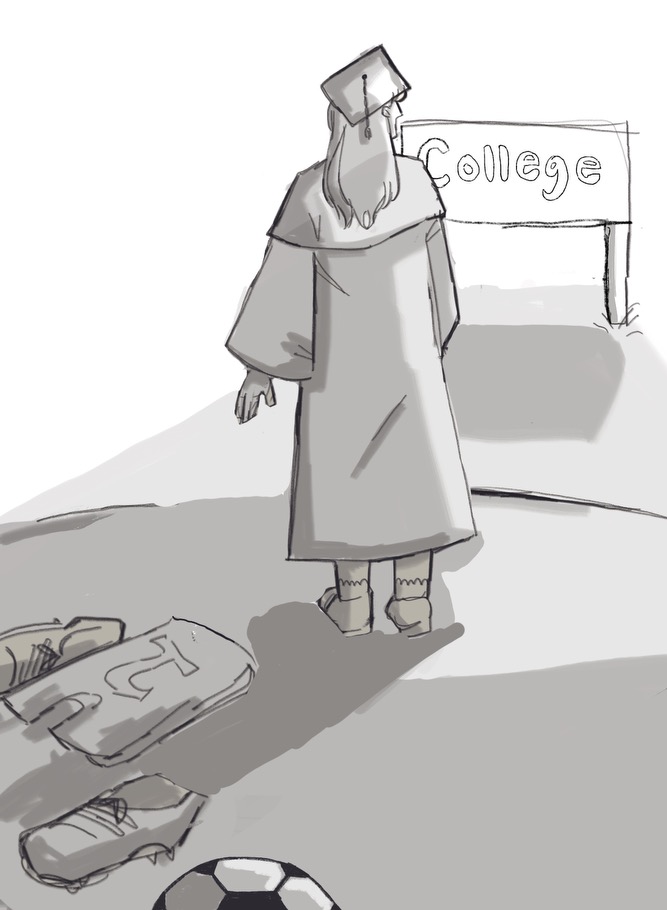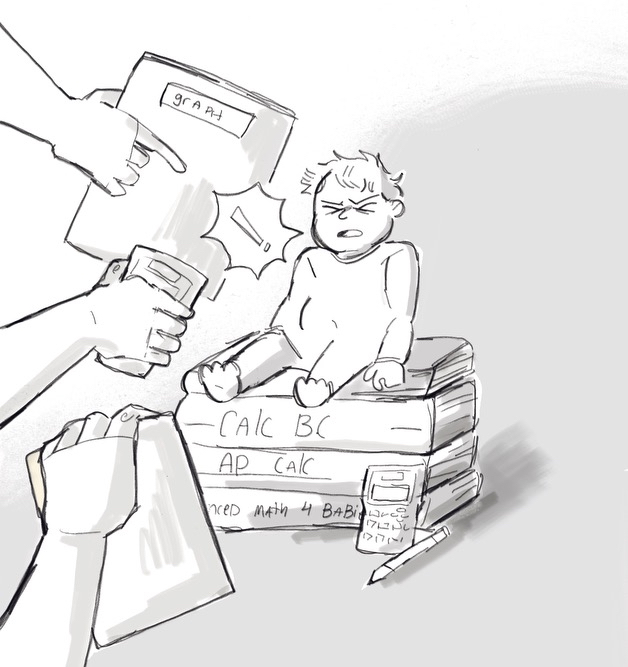College banners adorn the tables in the Morrison Gym as a handful of athletes and family members wait with baited breath and small smiles as each player signs their name on a sheet of paper, their coaches standing by with proud grins. While this might seem like an anticlimactic end to many years of athletics, Signing Day is the pivotal point in many athlete’s careers, the moment they commit to playing their sport for a college.
Recog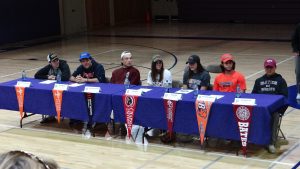 nition Day occurred on May 16 during lunch in the Morrison Gym.
nition Day occurred on May 16 during lunch in the Morrison Gym.
Before the event, Director of Athletics Vic Acuña said.“We’ll honor all of the athletes going on to the next level and allow each of them to say something short about themselves, and if the coaches want to speak they’ll speak,”Acuña said. “It’s a celebration of your time and commitment and the effort that you and your family have put in.”
Acuña said that signing with a college shows an athlete’s passion for their sport.
“When you’re signing with a college, you are essentially deciding that you want to pursue a lifelong dream, which is the case for most people who pursue athletics after high school,” Acuña said. “Everything is so competitive and space is so limited that you have to be really committed to your craft and realize your potential and your dream.”
For athletes signing with colleges, Signing Day is the culmination of months or years of hard work. Senior Adam Low, who signed with Santa Clara University to play water polo, said that the process started over the summer of his junior year and involved emails, sending videos of him playing to colleges, many college visits, and then the process of admissions.
“The most rewarding part is for years, or many many months, it’s kind of a mystery as to whether it’s going to work out because there are so many athletes across the country who are doing the exact same thing as you,” said senior Sabrina Kim, who will signed with Harvard University for rugby. “It’s really rewarding to know that all of your guessing and all of your hoping and hard work is coming to fruition and you can see the light at the end of the tunnel, and you have a plan for a year at least.”
Acuña said that the hard work put in makes the results all the more exciting.
“I know kids who are being looked at and recruited starting in seventh and eighth grade,” Acuña said. “It’s a long deal, it’s a competitive situation, and it’s just so exciting for our own athletes to be able to continue their education in their athletics.”
Looking at colleges is a different process for students looking to play a sport in college, Acuña said.
“If you’re not being pursued to participate in something extracurricular on a college campus, it is really about you finding out what college you want to go to,” Acuña said. “If you are being recruited to participate in something on their campus, they are coming to you and they are providing the information so it’s a little bit easier in that sense.”
Low agreed, saying that because he stayed at some colleges overnight he got a more vivid idea of what the college was like.
“I kind of got a different view as a recruit because I got to meet the players and see what it’s really like, and the night life scene,” Low said.
Kim said that for her, the college experience will be different from a non-signing student in that she will already have a community when starting as a freshman.
“I think a great thing about signing and knowing you are going to be a part of a sport next year is that you will walk on campus with a great tool for meeting new people right away and having a community,” Kim said. “Life as an athlete in college will be a place where I can make a lot of friends who have the same interests as me.”
Acuna said that the most important part of athletics is the relationships players build along the way.
“One of my core beliefs in terms of what I think of athletics and the culture I am trying to build and instill in Piedmont is that so much of our lives are built on relationships,” Acuña said. “Everybody involved in this process is so committed to helping this person achieve their dreams. It comes back to relationships because without those people and their support, it does not happen.”
Kim agreed with Acuña, saying that it was because of her coaches that she was able to achieve her dream in the first place.
“At the end of the day the people who helped me get here were my parents and definitely my high school coaches,” Kim said. “I wasn’t even planning on going this route but they really believed in me from when I was a sophomore and gave me a way to keep having this sport be a part of my life. Athletes get a lot of credit, but it is definitely not just our athletic ability, there are a lot of people along the way helping [student athletes].”
